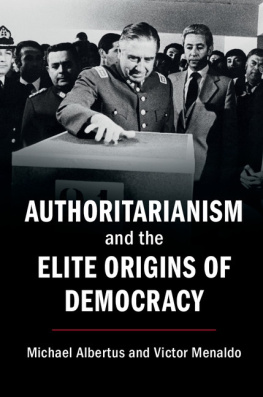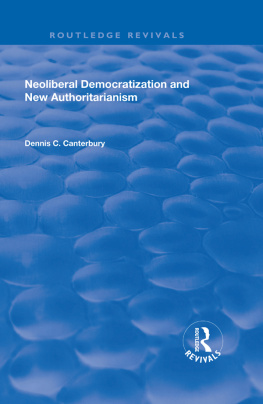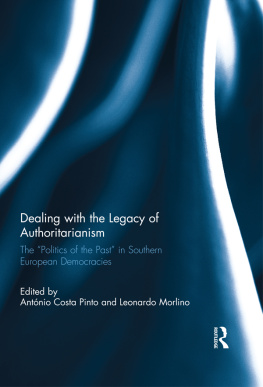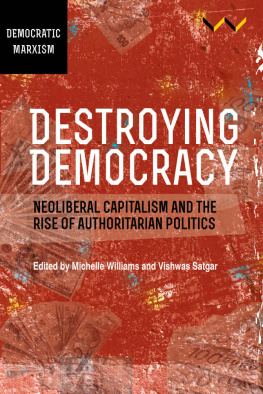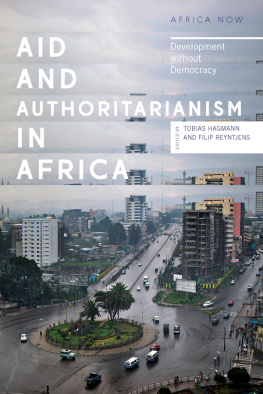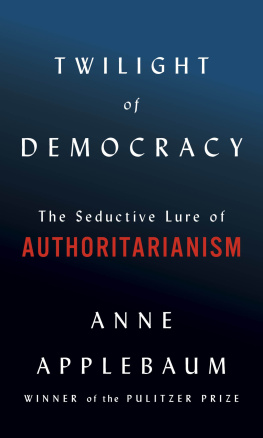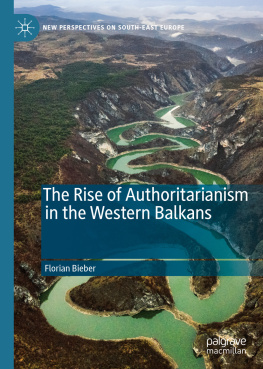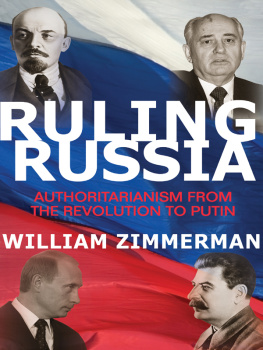This book argues that in terms of institutional design, the allocation of power and privilege, and the lived experiences of citizens, democracy often does not restart the political game after displacing authoritarianism. Democratic institutions are frequently designed by the outgoing authoritarian regime to shield incumbent elites from the rule of law and give them an unfair advantage over politics and the economy after democratization. Authoritarianism and the Elite Origins of Democracy systematically documents and analyzes the constitutional tools that outgoing authoritarian elites use to accomplish these ends, such as electoral system design, legislative appointments, federalism, legal immunities, constitutional tribunal design, and supermajority thresholds for change. The study provides wide-ranging evidence for these claims using data that span the globe and date from 1800 to the present. Albertus and Menaldo also conduct detailed case studies of Chile and Sweden. In doing so, they explain why some democracies successfully overhaul their elite-biased constitutions for more egalitarian social contracts.
Michael Albertus is an assistant professor of Political Science at the University of Chicago. Albertuss first book, Autocracy and Redistribution: The Politics of Land Reform (Cambridge, 2015), won the Gregory Luebbert Award for best book in comparative politics and the LASA Bryce Wood Award for best book on Latin America in the social sciences and humanities.
Victor Menaldo is an associate professor of Political Science at University of Washington and an affiliated faculty member of the Center for Statistics and the Social Sciences, Near and Middle Eastern Studies, and the Center for Environmental Politics. His first book is entitled The Institutions Curse: Natural Resources, Politics, and Development (Cambridge, 2016).
University Printing House, Cambridge CB 2 8 BS , United Kingdom
One Liberty Plaza, 20th Floor, New York, NY 10006, USA
477 Williamstown Road, Port Melbourne, VIC 3207, Australia
4843/24, 2nd Floor, Ansari Road, Daryaganj, Delhi 110002, India
79 Anson Road, #06-04/06, Singapore 079906
Cambridge University Press is part of the University of Cambridge.
It furthers the Universitys mission by disseminating knowledge in the pursuit of education, learning, and research at the highest international levels of excellence.
www.cambridge.org
Information on this title: www.cambridge.org/9781316649039
DOI: 10.1017/9781108185950
Michael Albertus and Victor Menaldo 2018
This publication is in copyright. Subject to statutory exception and to the provisions of relevant collective licensing agreements, no reproduction of any part may take place without the written permission of Cambridge University Press.
First published 2018
Printed in the United States of America by Sheridan Books, Inc.
A catalogue record for this publication is available from the British Library.
ISBN 978-1-107-19982-8 Hardback
ISBN 978-1-316-64903-9 Paperback
Cambridge University Press has no responsibility for the persistence or accuracy of URL s for external or third-party internet websites referred to in this publication and does not guarantee that any content on such websites is, or will remain, accurate or appropriate.
Contents
Figures
Tables
Acknowledgments
The driving ideas behind this book date back to our early conversations and work at Stanford University, when one of us (Albertus) was in the final years of his PhD and the other (Menaldo) was a fellow at the Hoover Institution. Both of us coincided on the observation that dictatorship is a dangerous game. When all goes well for ruling political elites and their economic allies, they enrich themselves and lord over their subjects. But when conflicts arise, fortunes can change very quickly and often dramatically. Years of accumulating power, prestige, and fortunes can be ended in an instant, at the tip of a gun or in a basement prison cell. We began working through bits and pieces of this story, particularly elite infighting and expropriation, and how dictators construct and cohere stable ruling coalitions.
As our work progressed, we began thinking more about how volatility under dictatorship can have consequences for democratization as elites seek safe haven under more predictable institutions. At the same time, we both began uncovering the fingerprints of authoritarianism on many of the democratic countries we were studying for other purposes. In many of these democracies, the livelihoods of citizens had changed very little since their transitions from authoritarianism. And in some, in what seemed like a cruel joke, the democratically elected politicians were powerful elites from the authoritarian era.
We began brainstorming why this was the case and how to systematically measure the persistence of elite power under democracy. It was at this time that Tom Ginsburg invited us to a conference at the University of Chicago Law School on constitution making under authoritarian regimes. Our basic insight was that authoritarian constitutions could be used to delineate power and reduce conflict under dictatorship and that, critically, they could also serve to cement in the influence of authoritarian elites across transitions to democracy. Only later did we unpack this insight, examining a common set of formal and informal tools that outgoing authoritarian elites deploy through constitutions to retain influence and avoid punishment under democracy.
Since those initial insights, many colleagues and mentors have provided us with invaluable feedback that has immensely enriched the ultimate production of this book. Menaldo would like to thank his teachers, mentors, fellow researchers, and parents. He owes a special debt of gratitude to Stephen Haber, who was a superb advisor and mentor at Stanford and is a good friend. Habers work on the political economy of finance, industrialization, natural resources, democracy, and authoritarianism has profoundly shaped Menaldos views and therefore greatly influenced this book. Menaldo is also grateful for feedback on parts of his doctoral dissertation and presentations of the coauthored paper with Albertus entitled Gaming Democracy, both of which were later revised and incorporated in key ways into this book. In particular, he would like to thank Nathaniel Beck, James Caporaso, Stephen Hanson, David Laitin, Ross Levine, Margaret Levi, Noel Maurer, Paul Musgrave, James Robinson, David Stasavage, James Vreeland, Erik Wibbels, Susan Whiting, Dwayne Woods, and Gavin Wright. Menaldo also thanks Jennifer Noveck for invaluable research assistance.
Albertus is similarly indebted to his mentors, advisors, and those scholars who he has the good fortune of knowing. David Laitin, Jim Fearon, Steve Haber, and Jonathan Rodden his dissertation committee all provided him with invaluable training and all generously contributed comments on this project that challenged, extended, and deepened the initial ideas. Their enthusiasm in remaining supportive mentors well after Albertuss dissertation was completed is a testament to their laudable dedication to learning and the accumulation of knowledge.

